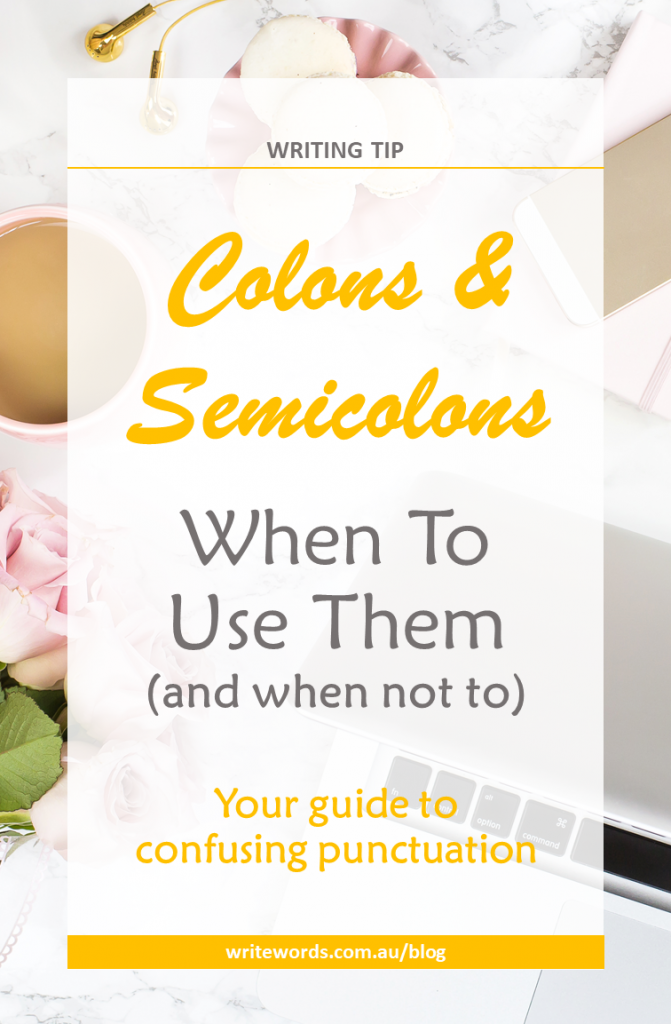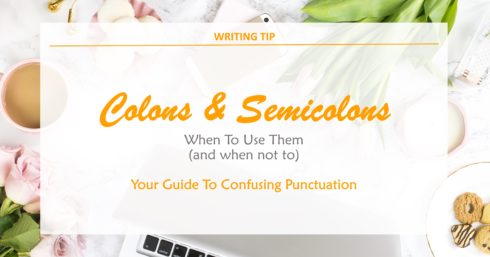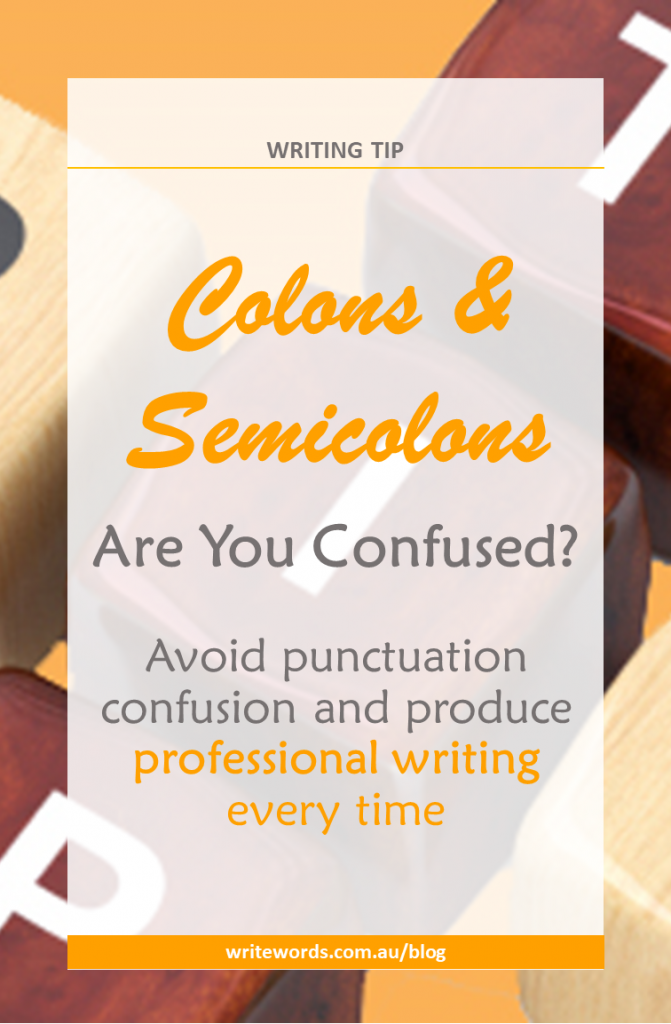Writing tip
Semicolons ; v : Colons
These punctuation marks are so often confused. The poor semicolon (;) is misused almost as often as the apostrophe.
Here’s your quick guide to using the ; (semicolon) and the : (colon).

Semicolons ( ; )
- Indicate a pause bigger than a comma and smaller than a full stop; the section of text on either side of the semicolon should be able to stand alone as its own sentence. See example 1.
- Separate items in a list that require a comma. See example 2.
A semicolon should never be used before bullet points.
Do you write too many words?
Cut the clutter with this cheat sheet.
Colons ( : )
- Come before an explanation, which can include a list (eg bullet points) or an example: just like this sentence. See example 2.
Examples
- I travel frequently for business; I believe meeting in person is more efficient than Skype or email.
- When preparing for a business trip, I always write a list which includes: what to pack; my flight, hotel and taxi itineraries; people I’ll be meeting, such as friends or colleagues; best restaurants; and things to do on the weekend.
Write with more confidence in 3 simple steps.
WATCH NOW!
Questions? Thoughts? Leave a comment below.
Receive more writing tips – free into your inbox. Sign me up!
Share the love!
Like this writing tip? Share it with your friends and colleagues.


